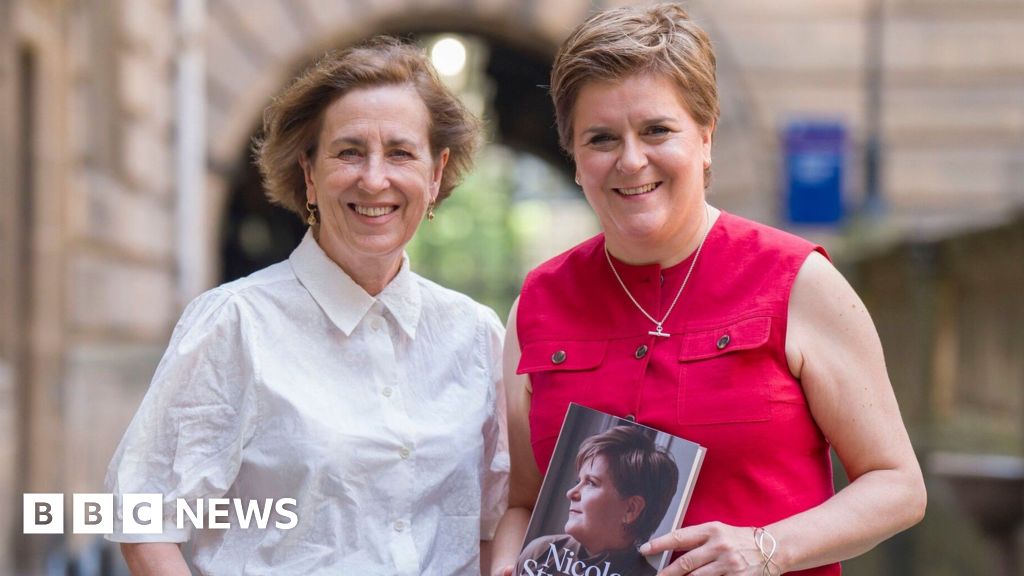Pauline McLean
Arts correspondent, BBC Scotland
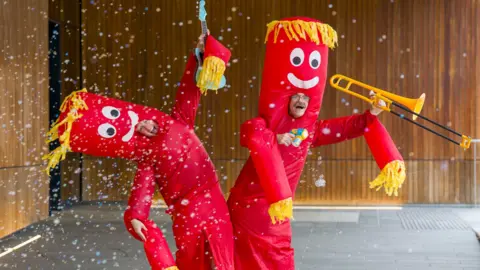 PA Media
PA Media
The festivals have grown more outlandish every year, featuring the likes of the extravagantly dressed and award-winning The Listies
Cultural festivals reflect the times we live in, so it’s natural that Edinburgh, home to the world’s largest arts festival, should be a noisy mix of opinions.
Those first festivals – the Edinburgh International Festival and Fringe – began in troubled times and today, it’s no less turbulent with global issues like the invasion of Ukraine, the Israel-Gaza war, climate change and identity politics shaping the conversation.
The festivals are also full of young performers, visitors and support staff who bring their own political views to the mix.
Having covered this festival for almost three decades, I know it’s not for the fainthearted – this shouty, polarised place in August.
But it’s always been this way.
Public indecency
In 1963, two artists were prosecuted for public indecency over an avant-garde show where a nude model was wheeled across the organ gallery of McEwen Hall.
Despite being acquitted in what was dubbed “Lady McChatterley”, the show dominated the headlines for weeks and the Lord Provost lamented that it was a tragedy that three weeks of glorious festival should be ruined by “one squalid incident”.
The city council was to produce two legendary self-appointed moral guardians whose campaigns to “clean up” the festivals were met with delight by the promoters of shows who saw it as a fast track way to sell more tickets.
In 1969, Councillor John Kidd complained about a scene in Christopher Marlowe’s Edward II in which two men kissed.
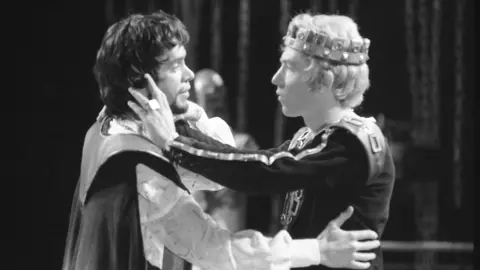
A recording in London – James Laurenson as Gaveston and Ian McKellen as King Edward in Prospect Theatre Company’s 1969 Edinburgh Festival production
One of the actors was Sir Ian McKellen who said at a later festival appearance that he would never forget his name, nor the complaint that it was “disgusting” and “filthy”.
Then came Conservative councillor Moira Knox, who from the mid 80s became a sort of Mary Whitehouse of the festivals.
She was the go-to person for any comment about perceived moral depravity in the festivals.
A repeat customer for her wrath was American impresario Jim Rose, whose shows included extreme acts of piercing, regurgitation, chainsaw-juggling and “The Amazing Mr Lifto”, who could lift weights with parts of his body you wouldn’t normally see attached to heavy objects.
He frequently invited Ms Knox to express her opinions and always invited the media along too. She never took him up on his offer of a ticket to any of his shows, but the attention meant plenty of people did.
She was so lauded by promoters that they even set up “The Moiras” which were awarded to the most offensive show on the Fringe.
Offensive content
But while they both symbolised conservatism in a city which only allowed itself to let its hair down (and take its clothes off) for one month of the year, much of the modern controversy comes from the other end of the political spectrum.
It began three years ago with Jerry Sadowitz. The comedian and magician had been performing his no holds barred act at the festival for decades.
But according to The Pleasance, they received “a number of complaints” about offensive content and cancelled the second of his shows.
Customers who had bought tickets for “Not for Anyone” were angry and confused.
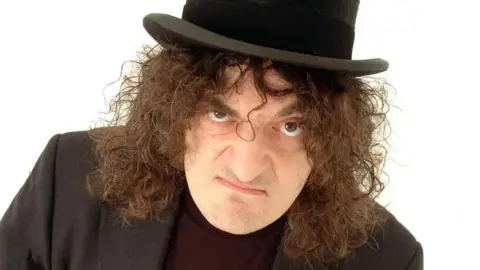 Jerry Sadowitz
Jerry Sadowitz
The Pleasance received complaints over a show by Jerry Sadowitz
A year later, when he returned for two sell-out gigs at Queens Hall, another high profile appearance was about to be cancelled.
Climate activist Greta Thunberg was due to headline the Edinburgh International Book Festival in 2023 in one of the biggest events they’d ever staged.
But weeks before it was due to happen, she pulled out saying the festival’s 20-year sponsorship arrangement with Edinburgh-based asset managers Baillie Gifford was destroying the planet thanks to their investment in fossil fuels.
As well as losing their keynote event, the row had reverberations for the book festival which is still being felt today.
Authors lobbied the festival to drop the Baillie Gifford money all together. Some staged walkouts of their events in 2023, and promised to up the protest the following year.
It had a domino effect with almost every book festival in the UK rejecting their sponsorship from Baillie Gifford.
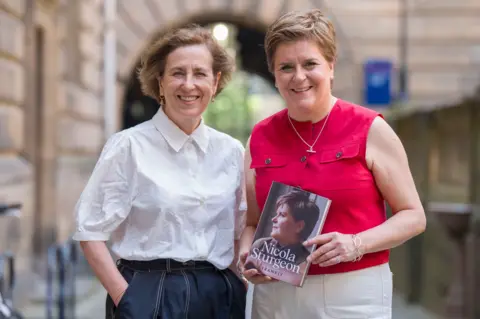 PA Media
PA Media
Nicola Sturgeon was among the speakers at the book festival, pictured here with presenter and journalist Kirsty Wark
This year in Edinburgh, it left the book festival with a £300,000 funding gap which had to be plugged with a grant from the Scottish government.
Rather than embrace the debate, as they’d tried to do in previous years, the Edinburgh International Book Festival chose to avoid confrontation by programming former First Minister Nicola Sturgeon’s memoir but excluding The Women Who Wouldn’t Wheesht – a collection of essays by the campaigners who challenged her legislation for gender self identity.
That fear of conflict also spilled over into the National Library of Scotland which excluded the book from its centenary exhibition on the advice of a small group of activists who claimed it constituted “hate speech”.
And over at Summerhall – an all year round venue with public funding, which has only narrowly survived redevelopment plans – not only did they shy away from conflict, they apologised to artists for allowing someone with gender critical views to have space in their building.
The fact that the person was Deputy First Minister Kate Forbes, in a pre-booked event by the Herald newspaper, made the row even more controversial.
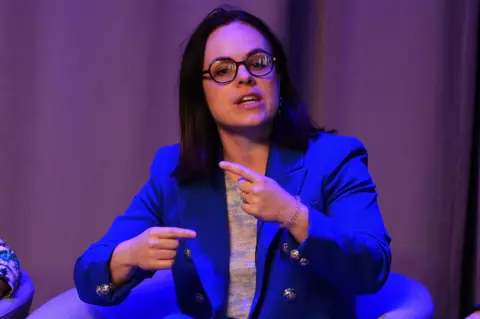 PA Media
PA Media
Summerhall indicated Kate Forbes would not be invited back due to her opinions on trans rights
The fact that all three of the aforementioned organisations are in receipt of public money is an important point.
Former SNP minister Fergus Ewing has already tabled a motion asking the Scottish government to insist that any arts body in receipt of public funds must undertake to honour freedom of expression under the law, or forfeit the grant.
At risk is Edinburgh’s reputation for defending the most important aspect of any cultural festival – freedom of speech.
For all views, not just those deemed appropriate by one generation, one group, one special interest lobby.
Moira Knox may not have liked what she saw, but she understood that it was up to audiences to make up their own minds.
There are thousands of shows at the festivals. It’s your choice what you see or what you don’t.
But freedom of speech is at the very heart of these festivals.
As the two oldest, the International Festival and the Fringe, look towards their their 80th anniversary, it’s important that they all unite to mount a staunch defence of that principle.
